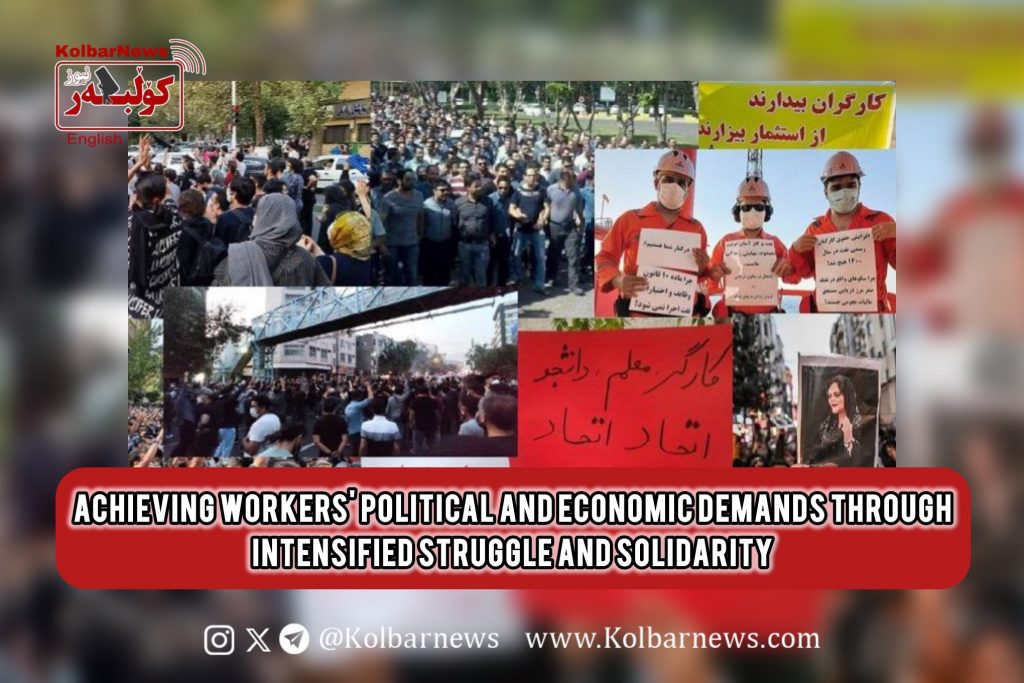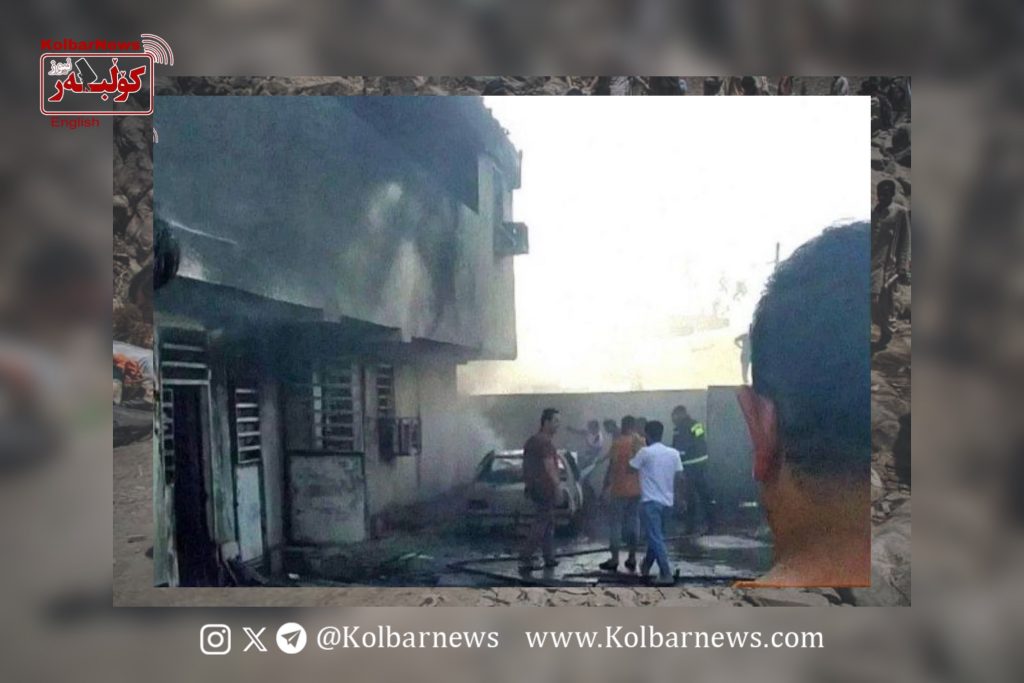
The Organizing Council of the Strikes of Contractual Oil Workers has reported the continuation of strikes and struggles by oil workers. According to this source, formal oil workers in Asaluyeh have coordinated protests at Pars Oil and Gas Company in Site One and Site Two of Pars Oil and Gas in Kangan.
The Organizing Council of the Strikes of Non-Permanent Oil Workers (Third Party Employees) reported on August 8, 2024, that the protests of Third Party employees continue at the South Pars Gas Complex. According to this report, Third Party oil workers and project workers stated in a joint declaration:
“We, the workers of South Pars, unlike previous instances where some so-called worker representatives postponed our protests last February, declare that we will stand alongside project, formal, and contract workers in the oil sector until our demands are fully met, the thieving oil managers are held accountable, and the parasitic contracting companies are completely eliminated.”
The workers added that contrary to the claims of the state-sponsored union of the Association of Gas Refinery Workers of Bushehr Province, our protests are in response to the corruption in South Pars and the collusion between this union’s officials and the employers and contractors. The fabricated statements by the Association of Gas Refinery Workers have no connection to our legitimate demands.
The workers’ demands at the end of the declaration include:
– Comprehensive reform of the unjust wage resolution by the Supreme Labor Council,
– Complete elimination of contracting companies,
– Reinstatement of Hojjat Rezaei, a formal worker dismissed from the sixth refinery,
– Implementation of previous agreements regarding earned leave and payment of camp allowances,
– Proper implementation of the job classification plan for all contract workers,
– Changes to the commuting and wage conditions of rental drivers,
– Fair implementation of the 14 days on, 14 days off work schedule for administrative and support workers.
Workers chanted slogans such as: “No to wage slavery,” “Unity, unity against poverty and corruption,” and “Livelihood, dignity, our fundamental right.”
On Tuesday, August 7, 2024, the Organizing Council (Third Party) reported that Third Party and project workers jointly gathered at the fifth, ninth, tenth, and eleventh refineries to pursue their demands. These demands had been articulated on Sunday, August 4, 2024, during continued protests by Asaluyeh Oil and Gas Company workers. They demanded the dismissal of the manpower contractor, the provision of job security, correction of the base salaries for newly hired employees, complete removal of the retirement cap, payment of severance for employees, full implementation of Article 10, and payment of back wages, and opposed the merger of the Oil and Gas Retirement Fund with other bankrupt funds.
The aforementioned actions and protests demonstrate that oil workers are at the forefront of taking strike and protest actions. However, workers in other industrial and service sectors have also been striking and protesting to achieve their demands. On Sunday, August 11, 2024, dismissed workers of the National Steel Group of Iran in Ahvaz held a protest gathering in front of the Khuzestan Governor’s Office, demanding reinstatement. On August 10, following protests and strikes by the medical staff of Haj Heydar Hospital in Lamerd, Fars Province, some hospital departments ceased service. Nurses at Namazi Hospital in Ahvaz also stopped working in all departments except the emergency department. Nurses at Khomeini Hospital in Abadeh and the Fasa Clinic joined these strikes. These strikes were in response to unfulfilled promises by provincial and national officials regarding the implementation of special bonuses, delayed payments, and compulsory overtime. Nurses chanted:
“No to compulsory overtime, we fought COVID, got no support, nurse shout, demand your rights, promises are enough, our table is empty.”
On August 6, workers at Wagon Pars Factory in Arak left the factory on the eighth day of their strike, crossing the city’s industrial bridge and holding a protest gathering in front of the Central Governor’s Office. Their demands include the termination of contractors, wage and benefit parity with other nearby factories and the MAPNA Group, formalization of workers’ contracts, at least one-year contract terms, and the reinstatement of dismissed colleagues.
Workers in several cities’ municipalities have launched multiple strikes and protests over unpaid wages. Retired workers also held a nationwide and unified protest on Sunday, gathering with retirees from insurance, state, and telecommunications sectors in Kermanshah. They chanted:
“Let go of the hijab, do something for us!” “As long as oppression continues, the street is our place!” “Gathering, organizing, protesting is our fundamental right!”
The struggles and strikes of workers to secure their immediate demands are essential and must be strengthened. These struggles and strikes can become a foundation for nurturing more activists and leaders, uniting those leaders, strengthening existing independent councils and organizations, and creating new class-based and civil organizations.

